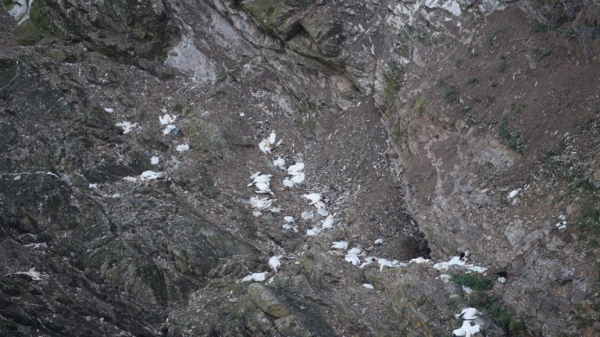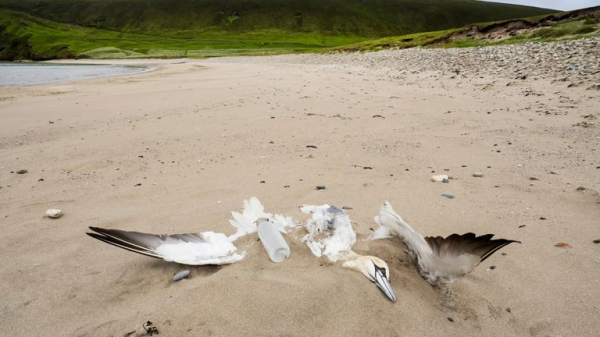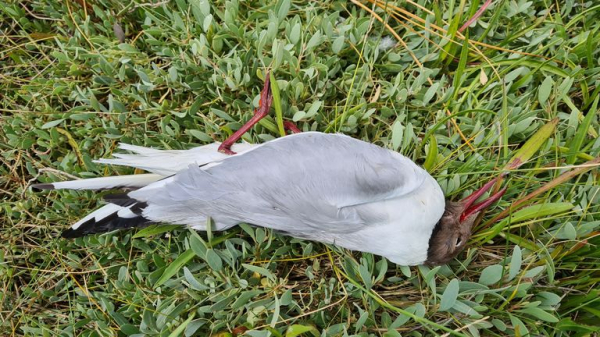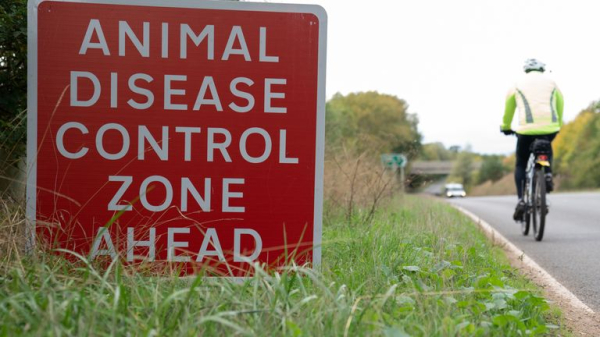
Walkers are being warned not to touch any virus infected birds they come across while enjoying Britain’s beaches and countryside.
The RSPB says thousands of seabirds have already died in the country this summer as the highly pathogenic avian flu “tears through colonies” for a third year.
The health risk to humans is very low. But the conservation charity is calling on the public to keep away from the “mass outbreaks” along the UK coastline and from the inland colonies that are also affected this year.

Avian flu affects all types of birds, including chickens and ducks.
But seabirds are being “pushed to the brink” as the virus devastates colonies of species that were already extremely vulnerable, the RSPB said, including red listed Kittiwakes and amber listed Guillemots and Tern species.
Twenty-one of the UK’s 25 breeding seabird species tested positive for the virus since 2021.
“Avian flu is sadly still affecting our wild bird populations, causing distressing scenes across our countryside,” Jeff Knott, director of policy and advocacy at the RSPB told Sky News.
“While human infections with HPAI are rare and the risk to the general public’s health is very low, members of the public are advised not to touch any visibly sick or dead birds.”
He added: “If you are walking with your dog, keep them away from touching or picking up infected birds.”


Birds in all four nations are affected, and the RSPB is particularly concerned about recent outbreaks along the east coast of Scotland, Wales, Northern Ireland, the Midlands and Northern England.
Among them, earlier this year 800 black-headed gulls were found dead at RSPB St Aidan’s, near Leeds, and 600 were suspected to have died due to avian flu at RSPB Saltholme near Middlesbrough.
It called on the government to publish urgently its “long overdue” Seabird Conservation Strategies to address wider marine challenges and relieve the mounting pressure on seabirds.

Parliament is currently in recess for the summer.
Defra’s chief veterinary officer Christine Middlemiss said: “We are working closely with our partners – including wildlife conservation charities – to take appropriate action to support these iconic species.
Alongside our year-round wild bird surveillance programme, we are funding a world-leading science programme to better understand how avian influenza is spreading and impacting our wild birds.
“More widely, the government has taken wider measures to support seabirds through the Marine Wildlife Bycatch Mitigation initiative and will publish an English Seabird Conservation and Recovery Pathway that will assess seabird vulnerabilities and the actions needed to address them.”
In England, Scotland and Wales, anyone who finds wild dead birds is asked to call the Defra helpline on 03459 33 55 77. In Northern Ireland, they should report them to the DAERA online system.
The RSPB also asked walkers to report sightings of birds whose species they can identify on the app or online version of BirdTrack to help assess population impacts.
